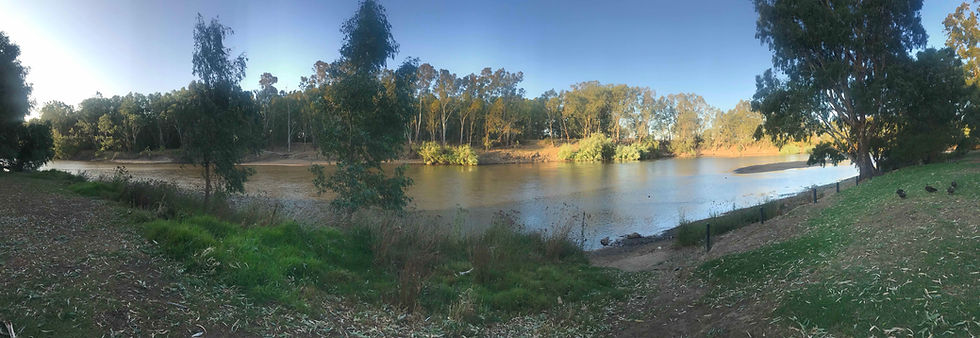The volumes that are not said
- GPSN RWG

- May 3, 2020
- 3 min read
Kristina Sailah
Year 4 at University of Notre Dame (Sydney)
Wagga Wagga, NSW

When I began my rural placement at a local general practice in Wagga Wagga, I predicted that I would see a lot of presentations for poor mental health. Not only is 10% of the population in drought and another 10% in severe drought, but upwards of 2439 homes and 5.4M hectares of land have been burnt in the Riverina district during the current bushfire season (Department of Primary Industries, 2020). I expected patients to present to the GP with complaints of low mood, low motivation, poor sleep, the classic symptoms of depression. Instead, I realised, the diagnosis had to be teased out of the patient like a spider from its hovel. Each patient would present for some arbitrary thing, the quiet shame of the real reason they were there written on their faces.
My first patient was a 50 year old farmer who had been taking sertraline for major depressive disorder for the last 30 years. “I hide it pretty well,” he said, “most people wouldn’t even know I was…” pause, “having the down feeling.” The next was a 69-year-old lady who burst into tears on mention of her husband who had been placed in a nursing home for Alzheimer’s disease 12 months ago. “I’ll get over it” she said regarding her ongoing depression. Jackie was a 58 year old lady who jovially revealed, “oh I’m currently getting out of a marriage, so sometimes I get a bit… frazzled… you might see my hair standing on its edge a little bit,” when the discussion regarding her frequent migraines turned towards possible recent stressors.
Prior to beginning medicine, I had worked in mental health for a number of years and yet such purposeful avoidance of the topic of mental illness was a shock to me. It opened my eyes to the reality of mental illness in a rural setting and helped to explain why the prevalence of mental illness is similar between rural and urban Australia, but the incidence of suicide is more than twice as high and increases with increasing remoteness (National Rural Health Alliance, 2009). Just as many people struggle with mental illness but the ability of people from rural settings to talk about it seems devastatingly limited. People in major cities are two times as likely to have accessed a psychologist for mental illness and the proportion of mental health encounters made by GPs in rural centres is only a third of those in major cities (Centre for Rural and Remote Mental Health, 2017). It seems people in rural areas are more likely to suffer in silence and thus, without intervention, more likely to end their own lives.
The stereotype of the stoic Australian is a heavy weight to bear. Farmers are used to solving their own problems: broken fence, fix it; sick horse, shoot it. When the norm is complete self-sufficiency, I can only imagine how difficult it would be to realise, let along seek help for, something as intangible as mental illness. Perhaps this helps to explain why so many patients do not even present to their GP, let alone utter the word ‘depression’ when they get there. I was lucky enough to be exposed to a number of fantastic GPs who understood this conflict and broached sensitive topics gently and without judgement. I will always be grateful to these patients for helping me understand that in a rural setting listening to what is said is important, but the art is in hearing the volumes that are not.

References
Department of Primary Industries. (2020). Combined Drought Indicator (CDI). Retrieved from https://edis.dpi.nsw.gov.au/
National Rural Health Alliance. (2009). Suicide in rural Australia. Fact Sheet 14. Retrieved from https://www.ruralhealth.org.au
Centre for Rural and Remote Mental Health. (2017). Suicide & Suicide Prevention in Rural Areas of Australia. Briefing Paper, Rural Suicide Prevention Forum Retrieved from https://www.crrmh.com.au/content/uploads/Briefing-Paper_FINAL_11052017.pdf






Comments